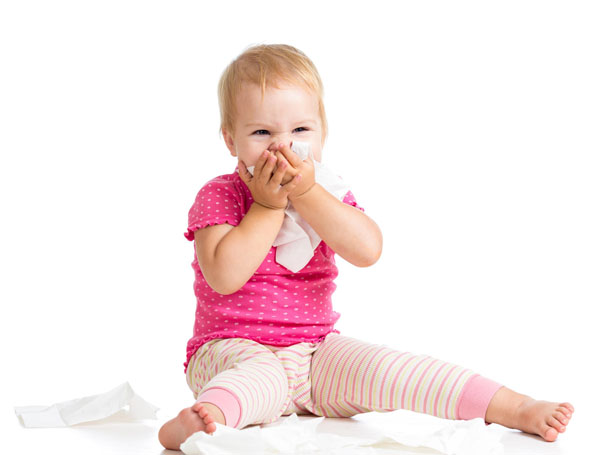
Do you know that cough is not really a medical condition in itself, but it is simply a natural reflex to keep the throat and airways clear. When it is caused by some condition then coughing is simply because of the possible symptoms of that condition. Generally cough is developed as a result of irritation of throat or respiratory passage. Being a parent, it is very stressful to see your infant with a bad cough having trouble breathing and not to mention sleepless nights. It is very difficult to discern whether a medical help is needed or some expert advice to treat the cough or simply a home remedy will be enough for the coughs to be treated.
However, coughs and congestion can sometimes serve as an indicator towards something more serious. Being a parent, you must be able to decode your baby’s cough, its common causes and treatment. Here, for you, we have jotted all the important information you need to know regarding coughs. This article will simply aid all the new parents to decode their little one’s cough and cold symptoms.
Types of Cough
There are four types of a cough:
- A Dry cough: Dry coughs occur when an infant has allergies, viral infections or a cold. This type of a cough helps clear irritation from a sore throat and post nasal drip.
- A Wet cough: Wet coughs are a result of respiratory illness or some bacterial infection. It causes phlegm or mucus to form in baby’s airways.
- A sudden cough: It is a sign of choking on a foreign body.
- A ‘barking’ cough: This type of a cough is linked with croup or other viral illness.
The best way to detect a cough is by listening. Yes! You heard it right. Knowing what a cough sounds like will help you and your doctor to decide about the treatment. However, the treatment for different types of coughs can vary, based on their causes.
Causes of cough and when to worry
Coughs are symptoms of an infection, usually the common cold. However, sometimes babies develop more disturbing and perturbing coughs. These are:
- Common Cold or Flu
If your infant has a runny nose or a sore throat it signals that your child has a common cold or flu. The coughs are usually dry, but sometimes the baby can have some rattling mucus or a slight fever at night, depending on the severity of cold.
Treatment: Offer your baby lots of fluids to help thin the mucus. Nasal saline drops also work best for babies and toddlers, and a cool-mist humidifier. Seek medical help if you see any severity of fever and cough.
- Croup
If your baby wakes up in the middle of the night with a barking cough and has difficulty breathing. It is a signal that he is suffering from croup. Croup closes the airways and makes the lining of the trachea swell up, the reason behind an infant’s trouble breathing. It is caused by a viral infection and affects children under age of 5. It begins with a normal cold. However, if you feel your baby’s cough has got worse or if your infant is having difficulty in breathing, seek medical help right away.
Treatment: Try to sit in a steamy bathroom for 10 to 15 minutes with your little one because the humidity will help calm your infant cough.
- Asthma
In Asthma, coughing usually occurs at night. Doctors generally agree that asthma is not common in children younger than 2 unless there is a family history of asthma and allergies. Unfortunately, if your family has a history of Asthma, there is nothing you can do to prevent your baby from developing it too. However, you can delay the development and help prevent attacks by avoiding possible triggers.
Treatment: In asthma, the treatment depends on what is causing it. The most important treatment is to avoid triggers like smoke, pollution, animal hair. Consult your doctor right away if you think your child has developed asthma.
- Bronchiolitis
Bronchiolitis is caused by a virus called the RSV (Respiratory Syncytial Virus). A cough in bronchiolitis may seem similar to asthma but is usually accompanied by loss of appetite and fever.
Treatment: It can be treated by providing lots of fluids and rest to the infant once his breathing is under control.
- Pneumonia
Pneumonia is an infection of the lungs. In pneumonia, cough is persistent and is accompanied by symptoms like fever, chest pains, and rapid breathing.
Treatment: Pneumonia cannot be treated at home. You must consult your doctor right away.
- Whooping Cough
Whooping cough is an uncontrollable and continuous coughing caused by an infectious bacterial disease known as pertussis. Anyone can get a whooping cough, but it is more common in infants and children. The coughing gets so rough and bad that it gets hard for an infant to breathe, eat or drink.
Treatment: Make sure that your baby gets vaccinated with the Tdap (tetanus, diphtheria, pertussis) injections. Erythromycin, an antibiotic is also prescribed which help prevent the disease. However, if an infant comes through whooping cough’s initial attack, it will need to run its course, which can take months.






